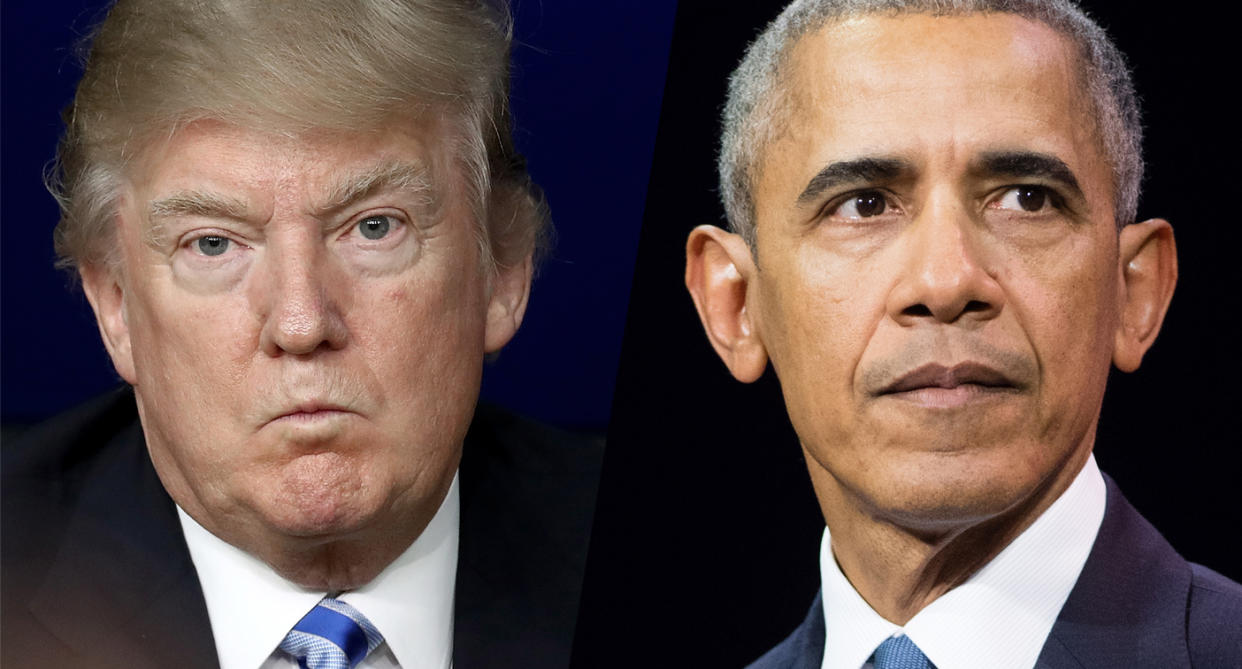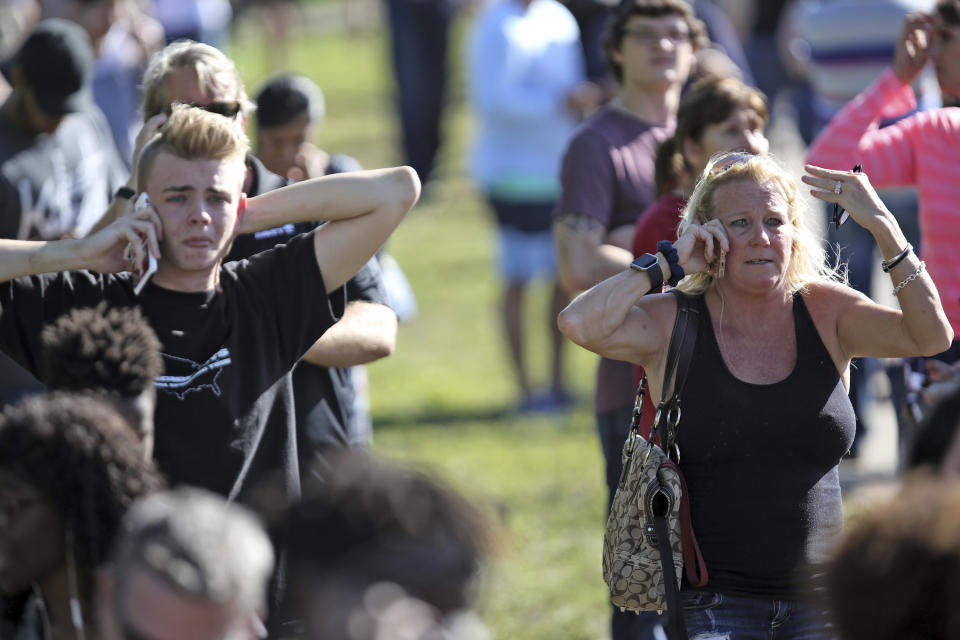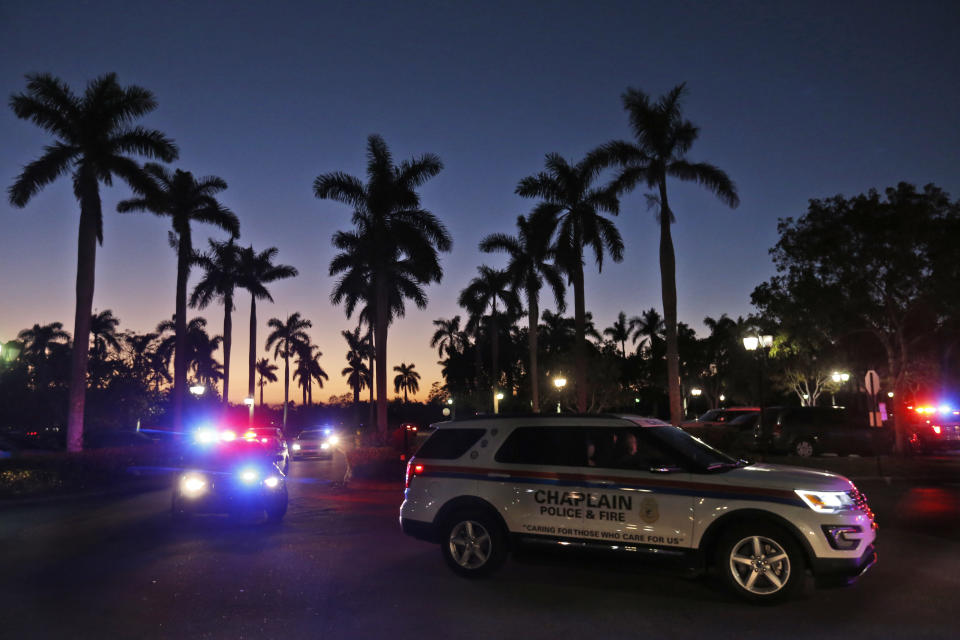How Congress and Trump stymied Obama's mental-health gun-control rule

President Trump said there were “so many signs” that the suspect in the tragic shooting Wednesday at Marjory Stoneman Douglas High School in Parkland, Fla., was “mentally disturbed.” He pointed out on Twitter Thursday morning that many neighbors and classmates were aware of his troubling behavior, and he urged Americans to report to the authorities anything that may indicate possible future violence.
Later Thursday morning, during an address to the nation, Trump focused on the importance of prayer, community and mental health but not guns: “We are committed to working with state and local leaders to help secure our schools and tackle the difficult issue of mental health.”
At least rhetorically, there is widespread consensus that people with psychological issues should have access to mental health services, even if there are disagreements over how they’re provided. But there is strong polarization over whom the government should allow to purchase firearms — including those with mental health issues.
One of Trump’s first actions in the White House was to quash former President Barack Obama’s recommendation for a new regulation that would prevent people with severe mental health illnesses from purchasing guns.
That nullified regulation’s origins stretch back over 10 years to the tragic Virginia Tech massacre in April 2007. With bipartisan support, Congress overwhelmingly passed the NICS Improvement Amendments Act of 2007 to address loopholes in the National Instant Criminal Background Check System (NICS) that allowed the Virginia Tech shooter to buy firearms despite having been identified as a danger by a judge.

In January 2013, just one month after the Sandy Hook Elementary School shooting, Obama issued a presidential memorandum calling on government agencies to actively participate in submitting data to improve the accuracy and efficiency of the NICS.
In December 2016, the Social Security Administration issued a rule for complying with the 2007 act by submitting to the NICS the names of certain recipients of Social Security Disability Insurance and Supplemental Security Income benefits, those with a designated representative to receive and handle their payments. The rule was meant to ensure that people who are not mentally competent to handle their own finances or hold full-time employment should not be allowed to purchase firearms. The Obama White House estimated that this would prevent roughly 75,000 people with documented mental health issues or legally established incompetence from buying firearms.
Robin Lloyd, the director of government affairs at Giffords, a gun-control organization established by former congresswoman and shooting victim Gabrielle Giffords, said these two criteria actually establish a fairly high threshold for mental incompetence. But she said that a number of due-process provisions were embedded in the rule: i.e., people who fall into that category would be notified of their status and invited to present evidence to petition to regain their gun rights.
The rule predictably divided politicians and pundits along ideological lines: The gun-rights crowd called it unconstitutional, whereas the gun-control crowd called it long-overdue common-sense legislation.
But there was another group that got swept into this public dispute. On this issue, advocates for persons with disabilities sided with organizations like the National Rifle Association (NRA). The American Civil Liberties Union (ACLU) opposed the Social Security Administration’s rule on the grounds that it advances the stereotype that people with mental disabilities are prone to violence. Faiz Shakir and Vania Leveille, respectively the national political director and senior legislative counsel of the ACLU’s Washington Legislative Office, wrote an open letter to Congress outlining the organization’s position:
“There is no data to support a connection between the need for a representative payee to manage one’s Social Security disability benefits and a propensity toward gun violence. The rule further demonstrates the damaging phenomenon of ‘spread,’ or the perception that a disabled individual with one area of impairment automatically has additional, negative and unrelated attributes. Here, the rule automatically conflates one disability-related characteristic, that is, difficulty managing money, with the inability to safely possess a firearm.”

The Consortium for Citizens With Disabilities, which advocates for people with physical and mental disabilities, and the National Council on Disability, a federal agency that advises the president and Congress on these issues, also publicly opposed the rule on the grounds that it promoted harmful stereotypes about people with disabilities.
In early 2017, the Republican-controlled Congress invoked the Congressional Review Act to revoke the rule with House Judiciary Resolution 40, which Trump swiftly signed it into law. The NRA celebrated Trump for counteracting Obama’s “last-minute gun grab” and “government overreach.”
“Today marks a new era for law-abiding gun owners, as we now have a president who respects and supports our right to keep and bear arms,” said Chris W. Cox, the executive director for the NRA’s Institute for Legislative Action. “Our thanks go to President Trump and the congressmen and senators who led the fight for this important legislation.”
Lloyd was disappointed with the federal action, and again when Congress passed a similar bill in March 2017 that would prohibit the Department of Veterans Affairs from submitting records to NICS and remove all of the current records.
“What do we see the House do? Instead of taking action on any of the number of bipartisan proposals that have been introduced — whether to ban bump stocks or to get the appropriate records into the background check system — we see Congress pass a bill that makes it easier for dangerous and untrained individuals to carry concealed firearms across the country,” she said.
Lloyd took issue with the gun lobby’s claims that we simply need to enforce the laws already on the books, rather than passing new regulations.
“Right now, what Congress and President Trump are doing is actively weakening our laws. They’re not enforcing the ones on the books. They’re making it much harder for states to enforce their own laws in the case of the concealed-carry bill. They’re preventing real and meaningful bipartisan action.”
Read more from Yahoo News:



